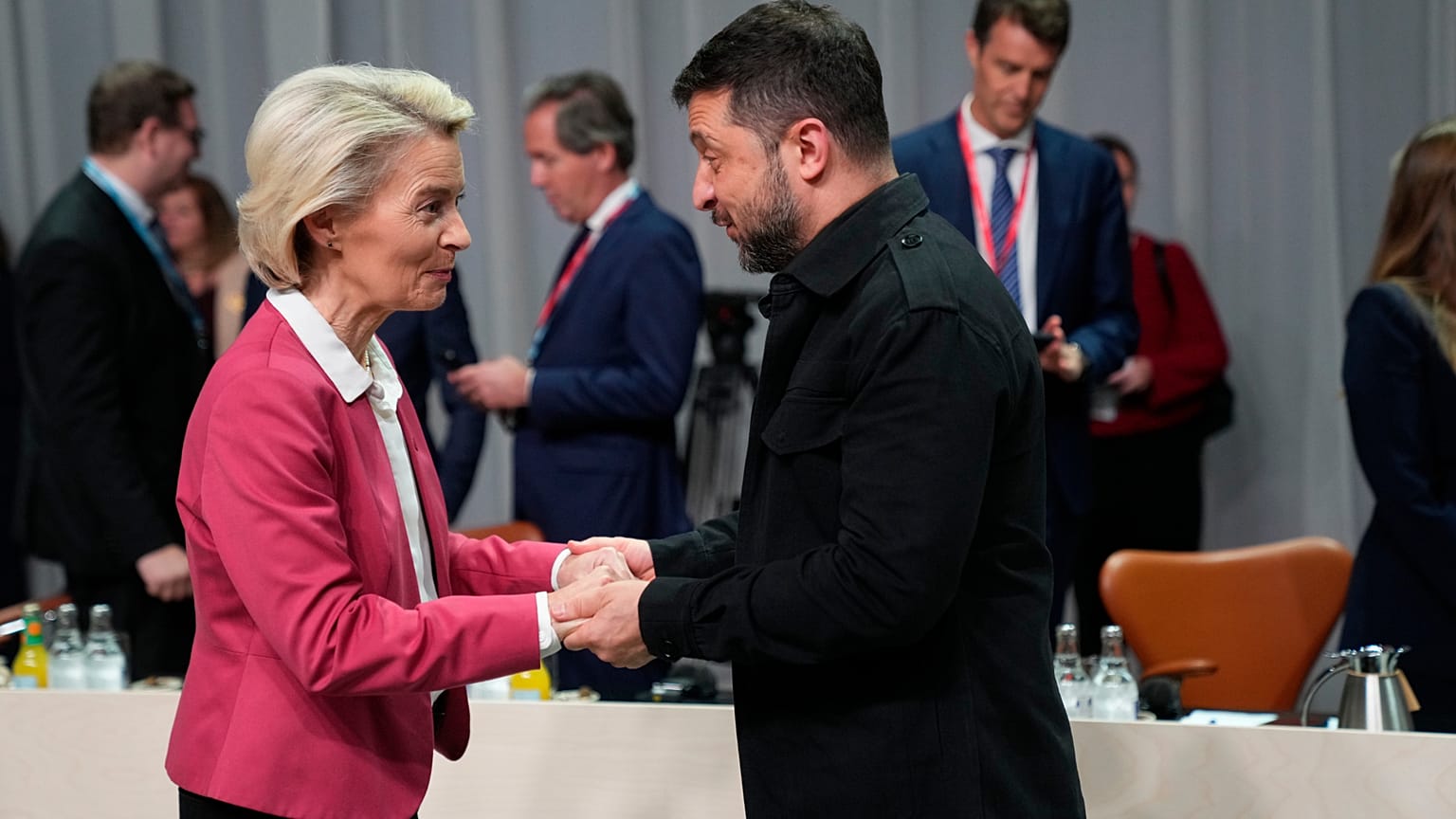EU ambassador to Ukraine Katarína Mathernová calls on the European Union to find an agreement to use the Russian frozen assets to finance Ukraine's war effort. In a strongly worded letter sent overnight, Belgian PM De Wever pushed back against the plan citing "unequivocal risks" for his country.
The European Union must move forward with a plan to use the Russian frozen assets to finance Ukraine with a reparation loan immediately, the EU's ambassador to Ukraine Katarína Mathernová told Euronews in an interview on its flagship morning TV show Europe Today.
The EU is looking for ways to keep Kyiv afloat and provide a constant funding line to pay for its military and budget needs next year and 2027.
The Commission has pitched an unprecedented plan to convert the Russian frozen assets into a reparations loan for Ukraine. The Belgian government holds the key as the host of the assets' depository Euroclear but is refusing to give it the greenlight.
"It is important to move on with the Russian frozen assets," Mathernová said on Europe Today. "It would send an important signal not only to Ukraine, but to Russia as well as the rest of Europe that we will stay with Ukraine."
Belgian Prime Minister Bart De Wever sent a strongly worded letter to the European Commission overnight. In the letter, seen by Euronews, De Wever said the reparations loan is "fundamentally wrong" and he remains "unequivocally clear" about the dangers.
"The proposed reparations loan scheme is in my view fundamentally wrong," he wrote. "With the proposal (for a reparations loan) we would not only violate a fundamental principle of international law, but we would also instigate uncertainty and fear into financial markets."
Diplomatic efforts at the highest echelons of the Belgian government and European authorities continue, but the clock is ticking before EU leaders gather for a summit in December for a crunch decision. Ukraine has argued it will need emergency funding in the first quarter of next year.
Mathernová echoed those concerns.
"The stakes are very high and not only for Ukraine for but for all of Europe," she said, citing a need to keep sanctions on Russia in place and send more militarily equipment for Ukraine.
Mathernová said the Ukrainian economy has been severely impacted by the Russian attacks to the energy infrastructure, leading to mass blackouts that can often go for 20 hours interrupted. The people of Ukraine, she said, are exhausted and want peace.
"But it must be a just peace," she added.
Jorge Liboreiro and Maria Tadeo contributed to this report.















